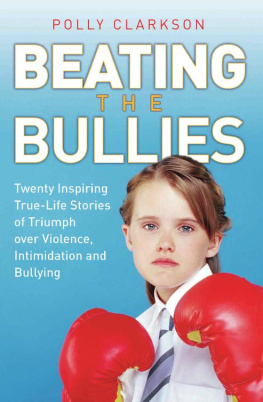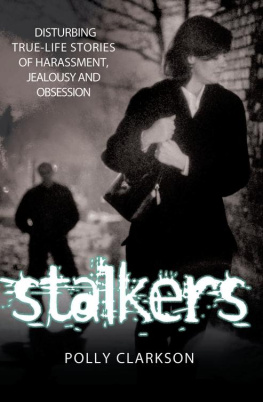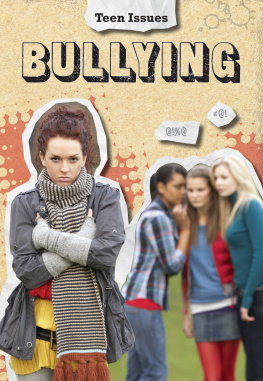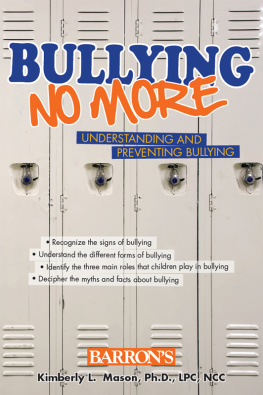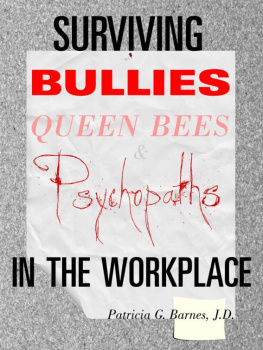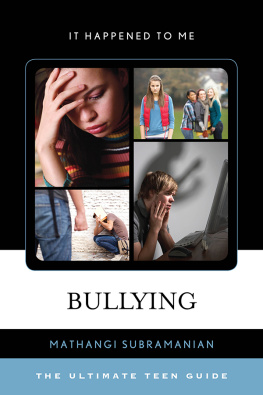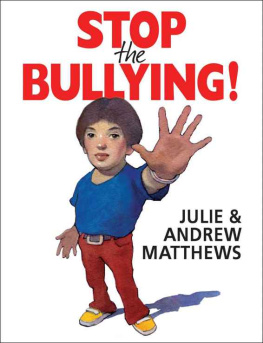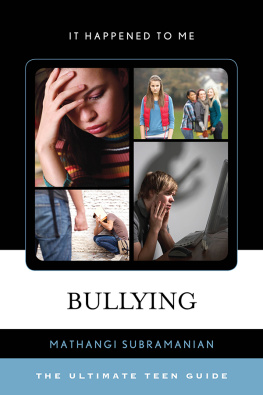A ppearances can be deceptive. That child playing in the playground you pass on your way to work, that office worker in his neat suit, and even the man who delivers your post could be the victims of bullies. You would never know because more than half of victims of bullying never speak out about their ordeal through fear.
I have interviewed countless people during the course of this book. But it has been the victims themselves who have really provided me with the ability to explore the tragic effects that result from bullying.
As bullying reaches epidemic proportions in our schools and our neighbourhoods, it has become the single most important social issue today. It goes on in every country in the world and can have disastrous effects on the victim, such as suicide and even murder.
There seems to be one characteristic all bullies have in common: a desire to hurt their victim.
However, in this book, I have spoken to many people from all races, genders and ages who have suffered years of abuse at the hands of bullies, but managed to turn their lives around and make them a success.
They have beaten their bullies.
The clear message is: victims do not need to suffer in silence.
There is no code of honour that prevents you from asking for help. Bullying is wrong, in any situation. But it is the way that bullying is dealt with that makes the difference between a miserable life and a tolerable one.
I have used only information that I believe to be entirely accurate and if I have erred in any way it is in good faith. The dramatic quality of the cases means that they often read like fiction. And, while some readers may discover discrepancies between my version of events and what has been reported previously, I have sought to let the vivid truth occupy the centre stage.
This is what makes these cases all the more shocking and moving.
Note: Names of bullies in some of the following case studies have been changed where indicated.
C ome on Mollie! Kerry White shouted up to her twelve-year-old daughter. Youll be late for school if you dont hurry up.
Bounding down the stairs, Mollie-Anna could feel the butterflies circling around her stomach. It was her first day at secondary school in September 2005 and Mollie-Anna was petrified.
Going through the important transition between primary and secondary school is always tough on children. Mollie-Anna White was no different. She had the same fears as every little girl would on her first day at school.
Will the others like me? Will I make any friends?
As she sat down at the table to eat her breakfast, Kerry could not believe her eyes.
Oh, Mollie! she said. Your hairs a mess and you havent even done up your shoelaces.
That was typical of Mollie-Anna. She was always in her own world, daydreaming.
Kerry grabbed a hairbrush and began combing through her daughters knotted blonde hair.
Mummy, Mollie-Anna whispered, between mouthfuls of cereal. Will the other girls like me?
Kerry reassured her daughter that she had nothing to worry about and packed her off on the local school bus. As she skipped off down the driveway, Mollie-Annas fears soon turned into excitement. But it was short-lived.
Within a few hours of her starting at the new school, some of the girls in Mollie-Annas class took a dislike to her and excluded her from the clique they were forming.
At first, Mollie-Anna brushed this off. She thought this was a usual part of secondary school.
But within days, this exclusion developed into intimidation. It started with money being stolen by a girl called Kelly.
A month later, the abuse had escalated. Mollie-Anna was now being subjected to daily verbal attacks and even threatening phone calls all from this same girl called Kelly.
At this stage, Mollie was brave enough to confide in her mother Kerry about what was going on at school.
Kerry, being an active member of the parentteacher association, decided not only to give her daughter her full support and advice but also to pay close attention to how the school dealt with Mollies dangerous predicament. Immediately, she asked Mollie to explain what had been happening to her teacher.
Mollie did so, but no action was taken by the school. By January 2006, the bullying had become so bad that Mollie was excluded from all social activity at school. She felt completely alone and desperate, and Kerry could not understand why her daughter was being bullied. Mollie had turned from a bubbly twelve-year-old into a scared, quiet young girl.
Kerry then decided she needed to gather evidence and started to tape the abusive phone calls.
That night, Mollie-Annas mobile phone rang.
It was Kelly.
Mollie-Anna picked it up.
If you come to school tomorrow, Kelly told her. Well beat you up, you stupid cow.
Kerry listened in on the phone call and was appalled. She realised there was a serious problem, but knew she would need more evidence to take to the police in order to present a strong case.
Mum, Mollie-Anna said to her mother one night. Ive written a poem about those girls.
As Mollie-Anna read it out, the situation really hit home.
Make her stop mummy
Make her go away
Please Miss Oats I dont want to go out to play.
Why is it me Miss?
What have I done?
I just want to play and walk the other way
She is following me Miss
She punches me to the ground
My nose is bleeding
Theres no-one around.
My name she calls I fall against the wall
Calling me names I start to bawl
She has gone finally I am free
I run home and
MY MUMMY SAVES ME
It cut through me like a knife, Kerry explains.
Kerry knew she needed to take action and finally put a stop to what was happening to her daughter. But, suddenly, the bullying took an unexpected and modern twist.
When Mollie-Anna was at home one evening surfing on the Internet, safe from the bullies at school, or so she thought, Kelly added her as a friend on MSN and began to abuse her verbally. Mollie-Anna was horrified to open up her Hotmail and find this girls abusive messages.
Not only did she need to suffer this indignity at school but now it had also infected her life at home.
She told her mother immediately, who advised her to tell her teachers. Once again, Mollie explained to the teacher what was happening and who the perpetrators were, but the school took no action.
It was just constant. A couple of times the school sent Mollie home because they feared for her safety, Kerry explains. Yet, nothing was done about it.
During one incident in the playground in March, Mollie-Anna was surrounded by a bunch of girls who were harassing and intimidating her.
Mollie-Anna hit out and shouted at the girls to leave her alone.
But immediately Mollie was reprimanded by a teacher for losing her temper. Again, the bullies were never even spoken to. Mollie-Anna was suspended from school for one day.

